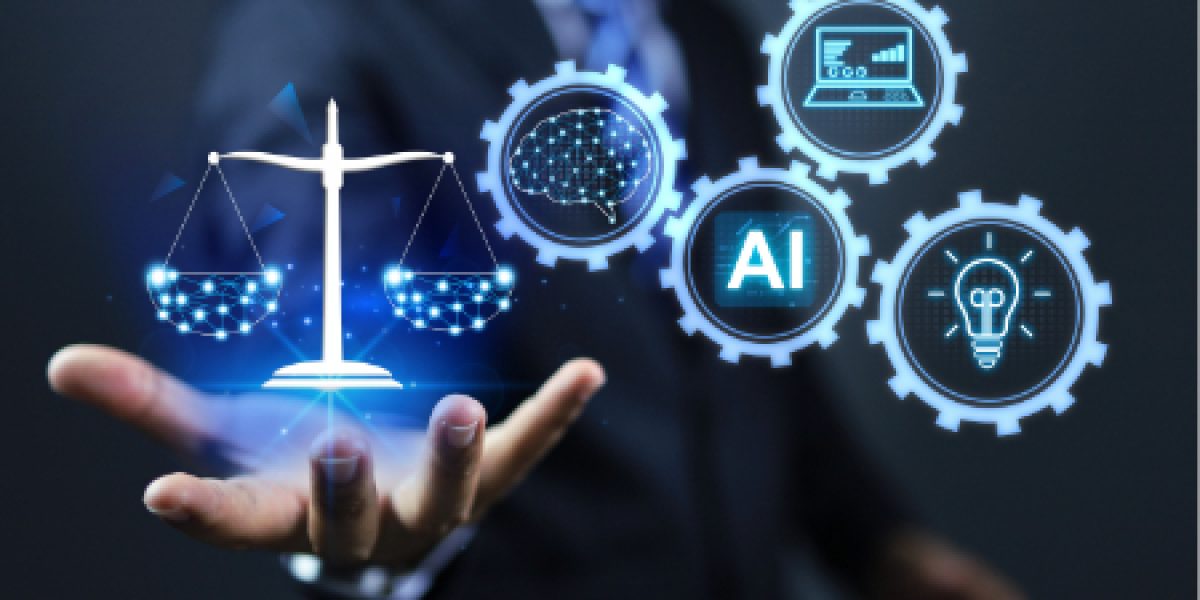Artificial Intelligence (AI) is quickly becoming a cornerstone of various industries, and the legal field is no exception. With the increasing complexity of legal issues and the growing volume of information lawyers and law firms need to manage, AI is emerging as a powerful tool to assist in legal processes. Legal AI refers to the use of artificial intelligence technologies—such as machine learning, natural language processing Legal AI, and data analytics—in performing tasks typically handled by legal professionals. From simplifying legal research to automating contract reviews and improving litigation strategies, Legal AI is transforming the way law is practiced.
The Rise of Legal AI
Legal AI is a branch of AI specifically designed for use within the legal sector. The growing pressure to handle large volumes of documents, meet client expectations, and increase efficiency has driven law firms to seek out solutions that automate routine tasks. Legal AI helps reduce the time and labor involved in traditional legal processes, thus enabling law firms to focus on providing more strategic advice to clients.
AI’s rise in the legal industry has been gradual, with early applications in e-discovery and document review. However, with advances in AI technologies, we are now seeing AI being used in more complex areas like legal research, contract analysis, and even courtroom predictions. As AI systems are trained to handle increasingly sophisticated tasks, they promise to significantly improve the efficiency and accuracy of legal services.
Core Applications of Legal AI
- Document Review and E-Discovery
- One of the most time-consuming aspects of legal practice is reviewing vast amounts of documents in discovery. Legal AI has made great strides in automating document review and e-discovery, particularly in large-scale litigation and regulatory investigations. Tools powered by AI, such as Relativity and Logikcull, use natural language processing (NLP) to scan, categorize, and extract relevant information from documents. This significantly speeds up the process, reducing the workload on lawyers and allowing them to focus on the more substantive aspects of cases.
- Moreover, AI systems can identify patterns and inconsistencies that might go unnoticed by human reviewers. By doing so, these tools improve accuracy and ensure that no critical information is missed, providing a higher level of assurance for lawyers and clients.
- Legal Research and Case Prediction
- Legal research is another area where AI is proving its worth. Traditionally, legal research is a time-intensive task that involves manually combing through case law, statutes, and other legal resources. However, with AI-powered platforms like ROSS Intelligence and Casetext, legal professionals can now conduct comprehensive research in a fraction of the time. These platforms leverage machine learning and NLP to analyze vast amounts of data and provide relevant case law, statutes, and other legal documents tailored to a specific question or legal issue.
- Additionally, AI is being used in predictive analytics to forecast case outcomes. By analyzing historical case data, AI algorithms can predict the likely outcome of a case based on various factors such as the judge, jurisdiction, and type of legal issue. This gives lawyers valuable insights into the strengths and weaknesses of a case, helping them develop more informed litigation strategies.
- Contract Drafting and Analysis
- AI has also begun to streamline the process of contract drafting and review. Contract management platforms like LawGeex and Luminance use AI to analyze contracts for risks, inconsistencies, or missing clauses. These systems can identify common contract issues, compare terms across different agreements, and even flag potentially problematic language. This not only reduces the time spent on contract review but also helps ensure that contracts are more comprehensive and legally sound.
- Additionally, AI can automate the drafting of basic contracts, including non-disclosure agreements, employment contracts, and standard service agreements. This can be particularly useful for law firms with high volumes of routine work or small businesses that need affordable legal solutions.
- Legal Automation and Virtual Legal Assistants
- Automation is one of the key advantages that Legal AI brings to the table. Routine tasks, such as client intake, document generation, and billing, can be automated using AI-based solutions. By reducing the time spent on administrative tasks, law firms can increase productivity and provide faster services to clients. Virtual legal assistants, powered by AI chatbots and natural language processing, can assist clients by answering basic legal queries, scheduling consultations, or providing general information about their cases.
- For example, AI assistants can be used in providing simple legal advice for everyday issues such as creating a will, understanding rental agreements, or filing small claims. While these assistants cannot replace human lawyers, they can provide valuable assistance to clients, particularly those who cannot afford full legal representation.
- AI in Litigation Support and Trial Strategy
- AI tools are also helping lawyers refine their litigation strategies. Litigation support software powered by AI can analyze past court cases to identify trends and outcomes, helping lawyers assess the likelihood of winning a case based on historical data. These tools can also analyze a judge’s past decisions, helping lawyers tailor their arguments to fit the preferences and patterns of specific judges.
- Additionally, AI is being used in courtroom simulations and virtual trials. Some systems allow legal professionals to simulate how a case may play out in court, offering insights into potential strengths and weaknesses before entering a real trial. This allows lawyers to adjust their strategies and increase their chances of success.
Ethical Challenges and Concerns in Legal AI
Despite its many advantages, Legal AI presents several ethical challenges. One of the main concerns is the potential for bias in AI algorithms. Since AI systems are trained on historical data, they may inadvertently perpetuate biases that exist in the legal system, such as racial or gender biases. For example, an AI tool used in sentencing could make biased recommendations if the data it’s trained on includes biases present in past sentencing decisions.
To address these concerns, it is crucial that AI developers ensure that the data used to train legal AI systems is representative and free from bias. Moreover, transparent algorithms and regular audits must be conducted to ensure that AI tools are functioning as intended and delivering fair outcomes.
Another ethical concern is the potential for job displacement. As AI tools automate many routine legal tasks, there may be concerns about job losses, particularly for paralegals, junior lawyers, or administrative staff. While AI can enhance efficiency and allow lawyers to focus on more strategic work, it’s essential for the legal profession to manage these transitions responsibly and offer upskilling opportunities to those affected.
The Future of Legal AI
As AI technology continues to evolve, the role of Legal AI in law is only set to expand. In the coming years, we can expect even more sophisticated tools that can handle complex legal tasks, from providing nuanced legal advice to analyzing massive datasets in real-time. Legal AI will continue to improve access to justice by reducing costs and increasing efficiency, allowing more people to benefit from legal services.
Furthermore, the integration of AI with other emerging technologies, such as blockchain and smart contracts, could have a transformative effect on the legal industry, especially in areas like contract law, intellectual property, and dispute resolution.
Conclusion
Legal AI is revolutionizing the legal industry by offering tools that improve efficiency, reduce costs, and provide valuable insights for legal decision-making. From document review to contract analysis and litigation strategy, AI is helping legal professionals deliver better services to their clients. However, as Legal AI becomes more widely adopted, it is essential to address the ethical challenges it presents, such as bias, transparency, and job displacement. With proper safeguards in place, the future of Legal AI looks bright, offering a more accessible and efficient legal system for all.












